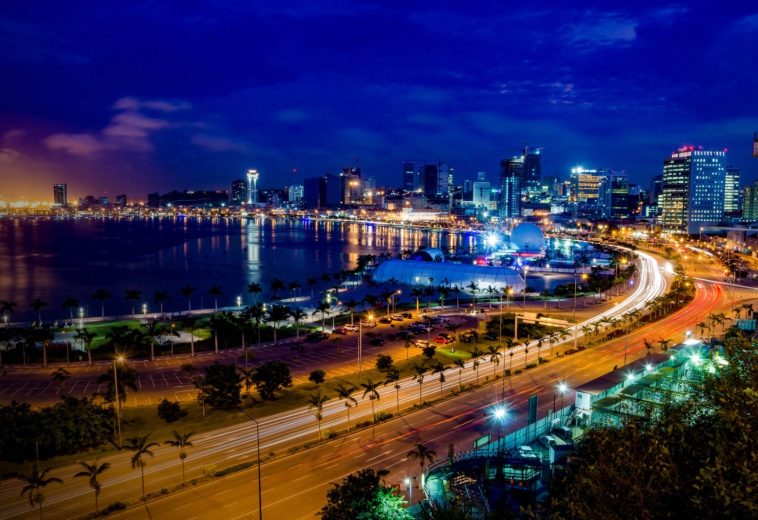An optimistic story of transformation in Africa is shaped by the efforts of visionary leadership. Some leaders on the continent have transformed and advanced their nations, irrespective of the difficulties encountered or the state of their nation before it was handed over to them. This article digs into the leadership styles of five influential figures: Mokgweetsi Masisi, President of Botswana; Paul Kagame, President of Rwanda; William Ruto, President of Kenya; Samia Suluhu, President of Tanzania; and Aziz Akhannouch, the Prime Minister of Morocco. Each leader’s commitment to progress, development, and innovation reflects their respective visions for growth and development in their nations.
Visionary leadership is characterised by traits like competence, bravery, commitment, clarity, and compassion. It keeps clear of corruption while emphasising the value of competence, honesty, and a well-defined nationalist program. In addition, it stresses the use of reason and objectivity while formulating policy, rejecting the use of demagogic, incompetent, and socially insensitive methods.
Mokgweetsi Masisi, President of Botswana
In his speech at the United Nations, Botswana’s President Mokgweetsi Masisi exhibits visionary leadership by highlighting international cooperation for just and sustainable communities. He advocates for enhanced multilateralism, acknowledging the common issues that all countries, regardless of size, face, and is devoted to the United Nations Charter and the 2030 Agenda. With a focus on job development and economic diversification, Masisi’s progressive attitude is seen in Botswana’s National Vision 2036 strategy, which is in line with continental and regional goals.
At the domestic level, programmes such as a reset agenda present proactive steps for digital technology and young employment, while his support for UN reforms and emphasis on efficient coordination demonstrate a commitment to effective global development efforts. Also, his grasp of global trade dynamics, demonstrated at the WTO’s Ministerial Conference, demonstrates a profound appreciation of the need for collaboration in determining the future of international trade.
Furthermore, Botswana has remained the most stable state in Africa and the second least corrupt country during President Masisi’s leadership, and these accomplishments have continued during his term. Masisi’s vast expertise as the former education minister of Botswana before taking office is a major factor in the country’s remarkable performance on the African scene.
Paul Kagame, President of Rwanda
Paul Kagame became president of Rwanda in 2000, a country devastated by genocide. After nineteen years, Rwanda is now a united, rich, and stable nation. As the leader of the Rwandan Patriotic Front (RPF), Kagame was able to put an end to the pre-genocide administration’s discrimination against people based on their area and ethnicity.
Through his revolutionary approach to Rwanda’s economic development, President Kagame establishes himself as a visionary leader. He saw the necessity for diversification and has guided Rwanda away from traditional sectors towards a knowledge-based economy. His attempts to refocus on industries including tourism, information technology, financial services, and renewable energy instead of agriculture have not only sparked economic growth but have also created job prospects for the Rwandan people. Kagame has further established himself as a progressive leader due to his emphasis on innovation and technology. He has pushed for investments in e-governance, ICT education, and digital infrastructure, as well as the creation of the Kigali Innovation City, hence establishing present-day Rwanda as an African centre for innovation and technology.
Furthermore, Kagame’s dedication to creating a business-friendly climate has led to improved ranks on the World Bank’s Ease of Doing Business Index, fewer instances of corruption, and streamlined procedures. These programmes have been successful in drawing in both foreign capital and domestic business, enhancing President Kagame’s reputation as a visionary leader who is guiding Rwanda towards economic prosperity.
William Ruto, President of Kenya
With his strategic focus on important sectors necessary for Kenya’s long-term growth and prosperity, President William Ruto demonstrates visionary leadership. His dedication to tolerance and national cohesion proves his aim of building a harmonious society. In order to achieve economic growth that improves everyone’s standard of living, Ruto prioritises support for small and medium-sized enterprises, welcomes international investment, and stimulates entrepreneurship.
Ruto also demonstrates visionary leadership by prioritising infrastructure development, which lays the foundation for future economic growth. In addition to facilitating present trade and business, he envisions a Kenya that positions itself as a regional economic powerhouse by building road networks, train systems, and better airports.
In addition, the President focuses on creating a more egalitarian society through specific initiatives and possibilities, especially for young people, while addressing pressing societal issues like unemployment and poverty. Finally, Ruto’s appreciation of the transformative potential of innovation and technology further demonstrates his dedication to making Kenya a leader in the digital economy, guaranteeing long-term growth.
|
|
|
|
|
|
Samia Suluhu, President of Tanzania
Samia Suluhu has been Tanzania’s most influential and visionary leader since she took over as president. She is now a source of encouragement for women all throughout the continent, being one of the few female presidents of Africa. Tanzania has advanced significantly under her direction, ranking seventh in Africa for improved security, among other improvements. Significantly, her emphasis on healthcare and education, along with government funding, helped to raise the Human Development Index from 0.529 in 2019 to 0.587 in 2021.
Moreover, roughly 200,000 women have joined groups dedicated to economic development and are receiving crucial funding for their endeavours, which is indicative of Suluhu’sdedication to women’s empowerment. Tanzania’s economy grew by 5% in 2021, and the World Bank predicted that it would rise by 8% GDP in 2022. Suluhu’s many accomplishments highlight her visionary leadership.
Globally, Samia Suluhu’s innovative leadership is seen in her proactive foreign policy. Her predecessor had no international experience; in just 360 days in power, she had interacted with foreign ambassadors, EAC leaders, and international institutions. Her attempts to improve ties with Kenya led to a notable increase in commerce, with Tanzanian exports surpassing imports. Also, her commitment to regional cooperation is demonstrated by her role in completing an oil pipeline deal in Uganda and her discussions with Rwanda on building a railway.
Aziz Akhannouch, Prime Minister (PM) of Morocco
A visionary leader, PM Akhannouch is dedicated to carrying on his predecessor’s good work in health, education, and transportation. His emphasis on general development and efficient administration is further demonstrated by his achievement of a high Human Development Index score and a Top 10 ranking in the Ibrahim Index for African administration. In addition, his focus on expanding trade between African nations presents a comprehensive plan for capitalising on the natural resources that complement each other on the continent.
By actively promoting Morocco’s green and renewable energy sector in accordance with a progressive royal vision, Akhannouch exemplifies visionary leadership. His commitment to sustainable development is shown in the emphasis placed on bringing the share of renewable energy to about 40% and the goal of reaching 52% in the near future. Also, his emphasis on the Nigeria-Morocco Gas Pipeline, green hydrogen, and ambitions to increase private sector investment by two-thirds highlight his strategic and forward-thinking approach to energy diversification and economic growth.
There is no doubt that these political figures have influenced both their own countries and the continent as a whole by demonstrating visionary traits to see to the development of their respective nations and Africa as a whole.


